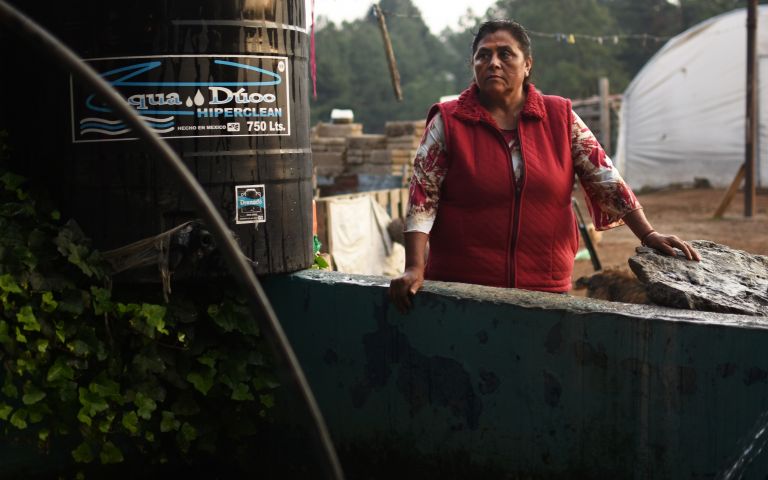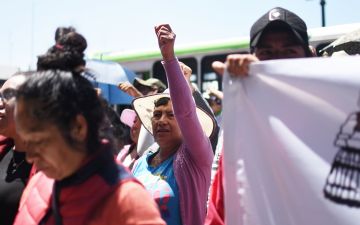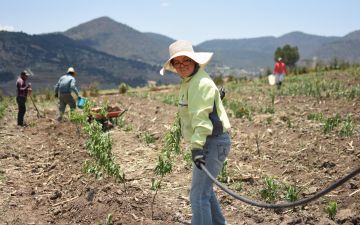Water is one of the most basic human needs, yet too many Mexico City citizens cannot rely on their tap each day. The problem is only getting worse. While most media coverage focuses on the city residents and political conflict, the impact on the nearby indigenous communities is too often ignored.
Mexico City imports its water through uphill pipes that are deteriorating, and this infrastructure is failing to support the needs of its 20-million-person population. “Always short of water, Mexico City keeps drilling deeper for more, weakening the ancient clay lake beds on which the Aztecs first built much of the city, causing it to crumble even further,” The New York Times reported.
In this project Meg Vatterott attempts to show how climate change disrupts a vulnerable community's access to water.




